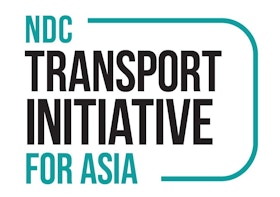A groundbreaking council of 14 experts known as the Council for Decarbonising Transport in Asia, set up under the NDC Transport Initiative for Asia, gathered to promote critical dialogue on achieving zero-carbon transport through their flagship report which was launched during the ADB Transport Forum held on April 5-7, 2022.
Containing recommendations for a completely decarbonised transport system by mid-century, its primary aim is to inspire action amongst different decision-makers in the Asian region. According to the Council, now is the best time to act, especially since carbon emissions from transport are expected to increase in Asia by another 48 per cent come 2050.
The Council sought to highlight ‘blind spots’ in the effort to transform the transport sector. They identified six that currently hold back more ambitious action.
Reported by the Council, there are sector-based, barrier-based, and policy-based blind spots – from calling out freight as the neglected child of transport decarbonisation to underlining the excessive attention to technical solutions causing a lack of focus on equally important issues, such as more sustainable road space allocation.
“We should move away from the perception of a linear correlation of transport infrastructure and development, e.g. Hong Kong has perhaps 4 per cent of road space allocated to transport, but no one would say it was underdeveloped,” said Council Member Alok Jain, CEO & Managing Director of Trans-Consult Ltd in Hong Kong.
The report consistently contains charts to summarise the main points of the Council for easier understanding.
If decision makers address the blind spots, the Council’s vision will be much easier to achieve – One where passenger trips are done by shared mobility options, transport modes are much more interlinked, and passenger vehicles are electric.
The Council believes it is possible to achieve the vision, as long as a just transition takes place. This means that policy makers ensure that workers and communities are not neglected and that distributional effects are addressed.
During the Transport and Climate Change Week 2022 session on May 9, 2022, the Council also presented a comprehensive approach to enable a transformation to zero emissions, including addressing the stated blind spots.
Some points include the significance of tackling freight as a way of transforming transport, integrated planning, building on diverse mobility options, and acknowledging that stopping harmful activities is equally essential compared to supporting beneficial ones.
On addressing freight, it is cited in the report that several Asian governments have already started doing their part in their respective countries.
“In October 2021, Japan made an announcement that it would aim to achieve net-zero greenhouse gas (GHG) emissions from international shipping by 2050. Japanese government would also promote development and demonstration of zero-emission ships such as hydrogen or ammonia-fuelled ships, which are essential to realise the target,” the report read.
“Viet Nam proposes to restructure freight transport towards a reduction in the share of road transport and increase in the share of rail and inland waterways for freight transport. Fiji has set a target to reduce emissions from domestic maritime shipping by 40 per cent up to 2030,” the report added (TraCS and SLOCAT, 2021).
Ren Shuai, Council Member and Head of Low-carbon Initiatives of G7 Connect Inc, recognises that “Freight and logistics are too complex for any single stakeholder to solve in isolation.”
“Throughout the report, it is emphasised that multi-stakeholder engagement plays an important role for successful decarbonisation of transport,” Shuai said.
The report also indicates that eight countries in Asia have submitted their long-term strategies to the United Nations Framework Convention on Climate Change (UNFCCC). As an example, Singapore sets specific transport related objectives like zero private vehicle growth (since 2018), 9 in 10 journeys on “Walk-Cycle –Ride” and clean vehicles by 2040 (NCCS, 2020).
The mixture of initial actions by different Asian regions and presented long-term strategies are significant in executing the mid-century target of decarbonisation.
In a council-member interview, Dr. Kalpana Viswanath, Co-founder and CEO of Safetipin in India, emphasises the importance of Asian citizens’ awareness of the problem in order to contribute to the zero-carbon target.
“The linkages between all of them need to be understood and they need to be made evident to communities and to people so that people also feel that they are playing a role in finding the solution,” Viswanath said.
However, it is recognised by the Council in the report that countries in Asia vary enormously, whether that be culturally, geographically, or politically. Considering local contexts, including existing transport infrastructure and services, it is encouraged by the Council in the report that each country should still elaborate on its own set of policy actions.
Nevertheless, general action plans for the decarbonisation of the transport sector are highlighted in the report, applicable to all Asian countries.
The flagship report by the Council for Decarbonising Transport in Asia objectively serves as a guide for the whole Asian region to reflect on their specific blind spots and plans immediately. It is now accessible to all.
Read more about the report by the Council for Decarbonising Transport: The Path to Zero: A Vision for Decarbonised Transport in Asia
Learn more from the Council for Decarbonising Transport: The Path to Zero: A Vision for Decarbonised Transport in Asia (Council for Decarbonising Transport)
Publish your content with EB Publishing
It's about who you reach. Get your news, events, jobs and thought leadership seen by those who matter to you.


















